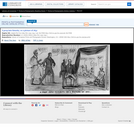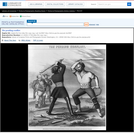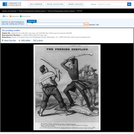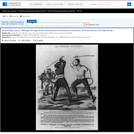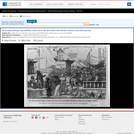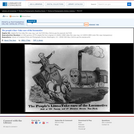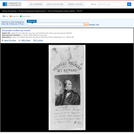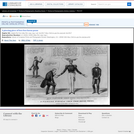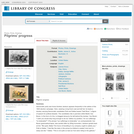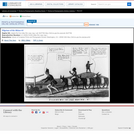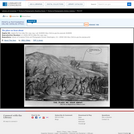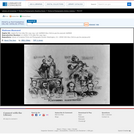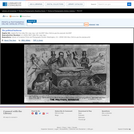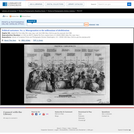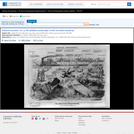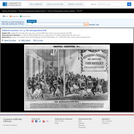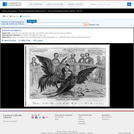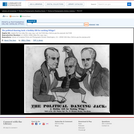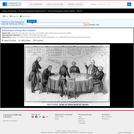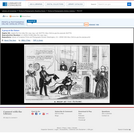
A Whig fantasy on the supposed outcome of the 1844 election. Here Henry Clay and Theodore Frelinghuysen occupy the White House. They watch from a window as John Tyler plays a hand organ and leads a group of minstrels outside, asking "A few Pennies Gentlemen for the poor Virginny minstrels!" On the top of the organ are three tiny rats, perhaps a reference to the resignation of Tyler's cabinet or a comment on the president's betrayal of Whig interests during his tenure. (For the Cabinet-rat simile, see "The Rats Leaving a Falling House" and "Rats Quitting the Ship," nos. 1831-2 and 1840-34.) On Tyler's leash is a monkey with the head of James K. Polk. He is perched on the back of a fox with Van Buren's head. Polk says, "Well this is better than having to "carry" the Fox!" Van Buren complains, "I dont know what they want to (Polk) this Monkey on my back for." Following Tyler is John Calhoun, in a woman's dress, playing a tambourine and singing in mock-Negro minstrel style, "Ole Wirginny neber tire." He has the webbed feet of a goose. Clay comments, "These Minstrels seem to be in want, we'd better call them in and give them something to eat." Frelinghuysen responds, "Yes Henry I'll call the Butler!" Watching from the right are former president Andrew Jackson, dressed as an old woman, Thomas Hart Benton, and an unidentified man. Jackson exclaims, "Oh! dear. by the Eternal! I remember that little Fox used to play his tricks about this same old white House some years ago, caught at last eh! Well I am sorry for You!"|Drawn by H. Bucholzer.|Entered . . . 1844 by J. Baillie.|Lith & pub by James Baillie 118 Nassau St. N.Y.|The Library's impression of the print was deposited for copyright on August 4, 1844.|Title appears as it is written on the item.|Weitenkampf, p. 77.|Forms part of: American cartoon print filing series (Library of Congress)|Published in: American political prints, 1766-1876 / Bernard F. Reilly. Boston : G.K. Hall, 1991, entry 1844-42.
- Subject:
- History
- U.S. History
- Material Type:
- Diagram/Illustration
- Primary Source
- Provider:
- Library of Congress
- Provider Set:
- Library of Congress - Cartoons 1766-1876
- Date Added:
- 06/13/2013
